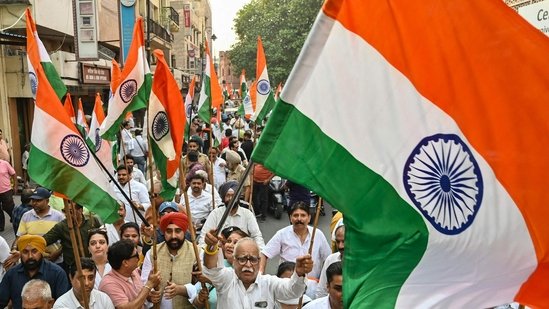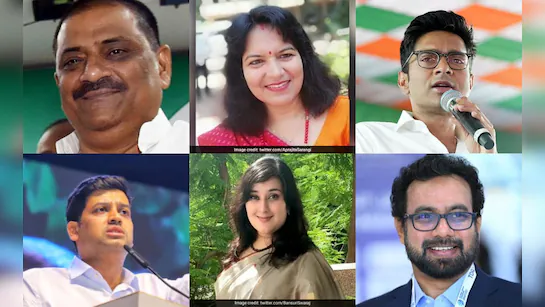
India has launched a strong global campaign called Operation Sindoor to expose Pakistan’s role in supporting terrorism. The campaign officially started today, with the first Indian delegation reaching the United Arab Emirates (UAE). This move marks an important moment in India’s foreign policy. The main goal of Operation Sindoor is to present proof that Pakistan is helping terrorist groups and spreading extremism across borders. Through this campaign, India wants to tell the world the truth and seek support for stronger global action against terrorism.
Operation Sindoor is a planned diplomatic outreach where Indian delegations will travel to multiple countries and present hard evidence of Pakistan’s terror links. The name “Sindoor” symbolizes strength, sacrifice, and a bold step forward. The campaign is set to reach at least 25 countries, including the UAE, United States, United Kingdom, France, Germany, Canada, Australia, South Africa, Japan, and others. These delegations will meet government officials, security agencies, think tanks, and media houses in each country. The goal is to create awareness about how Pakistan is involved in cross-border terrorism, not just against India, but also posing a threat to the world.
India decided to begin this campaign now for several important reasons. In recent months, terrorist activities have increased in Jammu and Kashmir and other parts of India. Indian security agencies have found clear proof of infiltration from Pakistan, the use of drones to drop weapons, and the funding of terror modules and sleeper cells. At the same time, Pakistan’s global image is already weak due to its past records with the FATF (Financial Action Task Force), which kept it on the grey list for failing to act against terror financing. By starting Operation Sindoor, India wants to put more pressure on the global community to act seriously against state-sponsored terrorism.
The UAE was chosen as the first stop for Operation Sindoor because it is one of India’s closest diplomatic and trade partners. The India-UAE relationship is very strong, and millions of Indians live and work in the UAE. Also, the UAE has taken a clear stand against radicalism in the past and is known to support peaceful coexistence in the region. By beginning the campaign in the UAE, India wants to gain early support from the Arab world, especially in a region where Pakistan has tried to build influence in recent decades.
The Indian delegation in the UAE includes senior diplomats, former intelligence officers, retired military leaders, and security experts. These representatives will meet with UAE government leaders, think tanks, and local media. They are carrying dossiers, video clips, and intelligence reports to show how Pakistan supports terror groups that are involved in attacks in India. The team will also meet members of the Indian and local community to spread awareness about terrorism and explain why global action is needed now more than ever.
In the UAE, the delegation plans to hold private meetings with top officials, conduct press briefings, and share detailed documents about Pakistan’s terror network. They will also show how terrorism is not just India’s problem, but a global danger. The information shared will include details about terror training camps in Pakistan, cross-border operations, use of drones to drop arms, hawala networks, and cyber propaganda that radicalizes youth.
After completing its mission in the UAE, India plans to send similar delegations to other important countries like the United States, UK, France, Germany, and Australia. Each delegation will present country-specific information and seek cooperation on actions like banning terror groups, cutting off aid to Pakistan, and strengthening counter-terrorism laws. India also wants countries to support global efforts to create tougher laws against terror financing, weapon supply chains, and radical online content.
With Operation Sindoor, India is sending a strong and clear message to the world: “Terrorism must be fought together, and countries that support it must be held accountable. Silence is not an option anymore.” India wants the global community to recognize that Pakistan’s role in terrorism cannot be ignored, and that the world must take a united stand. India is also pushing for better intelligence-sharing partnerships with other nations to prevent terror attacks before they happen.
Early responses to Operation Sindoor are expected to be positive, especially from countries that have also faced problems due to radicalization, extremism, and cross-border terrorism. Many countries in the West and Middle East are likely to support India’s efforts and work together on counter-terror strategies. However, Pakistan is expected to reject all allegations, calling the campaign “political propaganda.” India has already prepared a strong response with facts and documentation to counter any such denial.
If Operation Sindoor succeeds, it could lead to stronger international actions against Pakistan-based terror groups. Countries might reduce foreign aid to Pakistan and push for stricter monitoring through platforms like the FATF and the United Nations. This may also help create a united front against terrorism, forcing other nations to rethink their alliances and aid decisions.
This is not the first time India has tried to expose Pakistan’s terror links. In the past, India has shared dossiers at the United Nations, provided intelligence to global allies, and raised the issue at international conferences. But Operation Sindoor is different because it is organized, targeted, and long-term, with delegations visiting key countries face-to-face and presenting first-hand evidence. It is a serious step towards changing how the world sees state-sponsored terrorism.In conclusion, Operation Sindoor is a powerful diplomatic move by India to protect not just its own citizens, but also contribute to the global fight against terrorism. Starting with the UAE, India’s plan to expose Pakistan in different countries will help raise global awareness and build a coalition of nations committed to ending terror support. The campaign could redefine global alliances and increase pressure on those who provide safe havens to terror groups. The world will be closely watching how countries respond to India’s call for justice, peace, and security for all.































